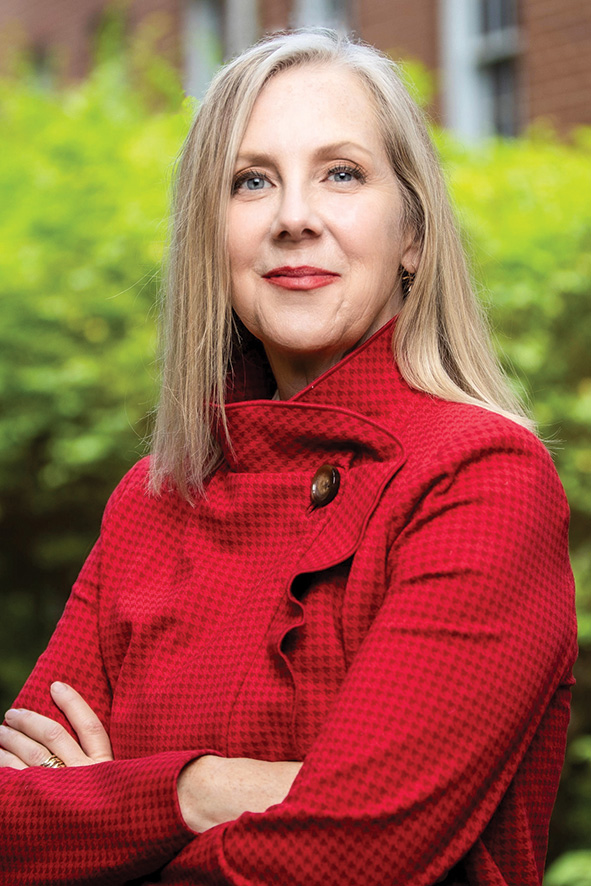
Catherine Ingrassia, Ph.D.
From the Dean
Welcome to VCU’s College of Humanities and Sciences 2024-25 Annual Report!
We are eager to share what has happened in the last year and forecast what lies ahead in the coming year.
In just a few short years, the promise of artificial intelligence has gone from sci-fi vision to tangible reality. From the smartphones in our pockets to the algorithms curating our newsfeeds,
AI now shapes nearly every aspect of modern life. Whether we’re asking virtual assistants for directions, getting personalized recommendations, or simply unlocking our phones with facial recognition, we interact with AI systems dozens of times each day—often without even realizing it.
AI + CHS
AI is also at the forefront of higher education conversations as we prepare our students for their careers post-graduation. According to the World Economic Forum’s “The Future of Jobs Report 2025,” technology-related roles, such as AI and machine learning specialists, are the fastest-growing jobs in the world, with the industry expected to create 11 million jobs in the near future. It’s imperative that we equip our students with AI literacy, and VCU College of Humanities and Sciences is doing just that — through the creation of new classes, microcredentials, a minor in AI studies, and research in the field. You’ll read about these innovations in our feature story.
It’s important to realize that AI literacy and career preparedness doesn’t refer only to the science behind the machine. Questions of ethics, biases, and fairness must be central to any meaningful understanding of AI. As we like to say in VCU’s College of Humanities and Sciences, we “embrace the and” by recognizing the importance and interconnectedness of humanities and sciences, theory and practice, inquiry and application. The future of AI — and our society’s well-being — will depend on these multiple perspectives on complex issues.
Unlocking Potential
Recently, VCU announced its capital campaign. Unlocking Potential: VCU’s Campaign for the Future is a bold initiative to invest in that potential by expanding access, advancing research, and preparing students to tackle society’s most significant challenges. (You’ll hear more about the campaign in the months to come.) The College of Humanities and Sciences is the place where excellence and access meet, so I’m excited about the ways the Unlocking Potential campaign can amplify our ability to realize those twin goals for our students, faculty, and researchers. If you would like to learn more about the campaign, please visit the Unlocking Potential website at unlocking.vcu.edu.
Higher Ed as Public Good
Every day, I walk on campus, speak with students, and check in with faculty members. When I do, it’s impossible not to see the vibrancy, vitality, and promise of higher education. As our alumni and supporters, you know firsthand the benefits of higher education — it has the power to open minds, fuel passions, better communities, and transform lives. It advances cutting-edge research that creates new knowledge and provides new perspectives. Higher education is a public good that improves the world for all of us.
In this 2025-26 academic year, I’m thankful for our faculty, staff, students, alumni, and supporters like you who make our work possible. Your unwavering commitment fuels our progress. Together, we’re advancing a College of Humanities and Sciences that will continue to inspire students and faculty for years to come.
Thank you,

Catherine Ingrassia, Ph.D.
Dean
College of Humanities and Sciences